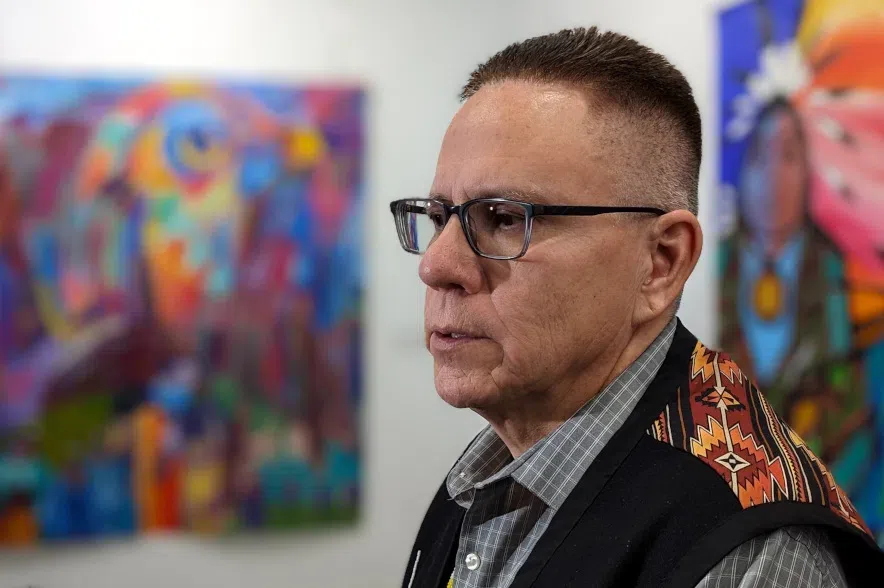By Glynn Brothen
Leaders from the James Smith Cree Nation continue to review an RCMP internal report and its findings on the police response to the mass stabbing on the reserve in September, 2022.
Chief Robert Head of the Peter Chapman Band, one of the three communities of James Smith Cree Nation, said band members feel safer with a 28-person security team now in place, but concern remains in part to ongoing drug activity and judicial limitations for security officers.
In the report, band leaders requested a permanent police presence in the way of a satellite RCMP detachment. In its response the federal force noted operationally it could not fulfill that request, instead offering proactive patrols of the First Nation when possible.
Head noted an alternative option is either a First Nations police force or the deputization of the current security staff, who lack the power to make arrests.
READ MORE:
- Sask. RCMP overhauls incident command structure after JSCN stabbings
- Sask. RCMP ‘proud’ of JSCN response, reviews recommendations
- JSCN lawyer says coroner’s inquest only touched on systemic issues
“It’s a given for every person in Canada to have safety and security in their homelands, in their houses, wherever they live,” Head said. “In First Nations country we live in very sparsely populated areas. We’re often isolated, and we would like to enjoy that same safety and security as well.”
He said the First Nation and others continue to lobby the federal government to make legislative changes to view policing as an essential service on all reservations across Canada.
The relationship between the band and the Mounties has improved since before the attacks, according to both Head and Rhonda Blackmore, Commanding Officer of the Saskatchewan RCMP.
“The relationship is a lot better than what it was, but there always is room for improvement. We could have more boots on the ground,” Head said.
Information-sharing underpins this refreshed relationship, with Mounties contacting security team members directly in the course of their dispatches, and also proactively to inform the band of any ongoing criminal activity.
“That’s something we haven’t had before,” Head said.
In the course of its review, Head said the Parole Board of Canada also committed to sharing information on parolees and their required conditions.
Now with the copious reports reviewing the incident completed, the nation continues to heal. Head said each person continues on their own path to wellness with support from the band, its various programs and (if the proposal is accepted by the federal government) a wellness centre.
“Healing is a long process. The tragedy that people were put through on Sept. 4… they’ve seen things that people should never have to see in their entire lives,” Head said.
“We realize that people are healing at different rates. Some people are not even at the point where they can talk about what they saw that day and what they went through that day. Whereas some of the people, they’ve already talked about it and they’re starting the healing process. That healing could take years, decades even, for some of the members.”











